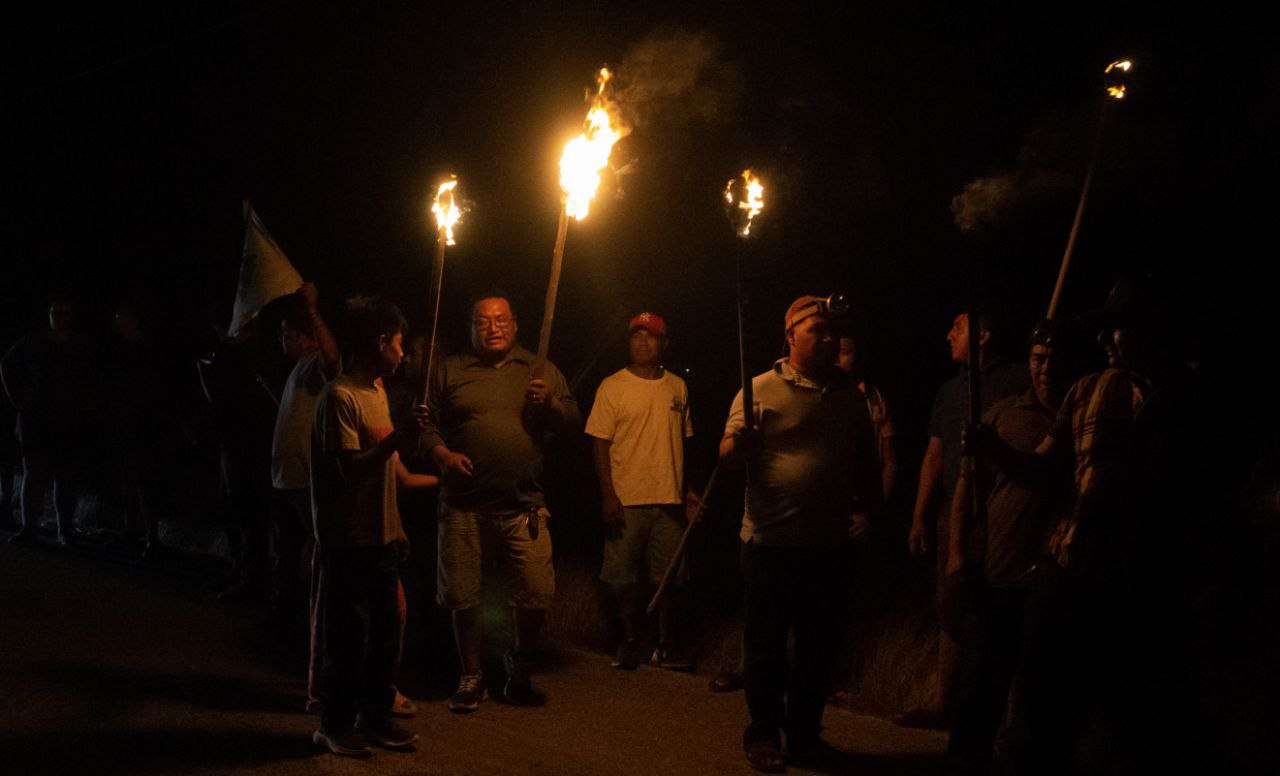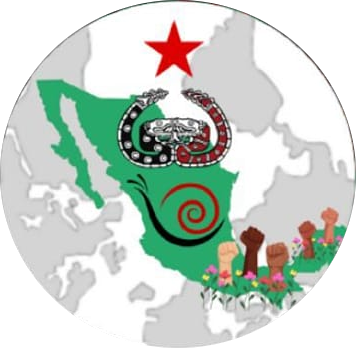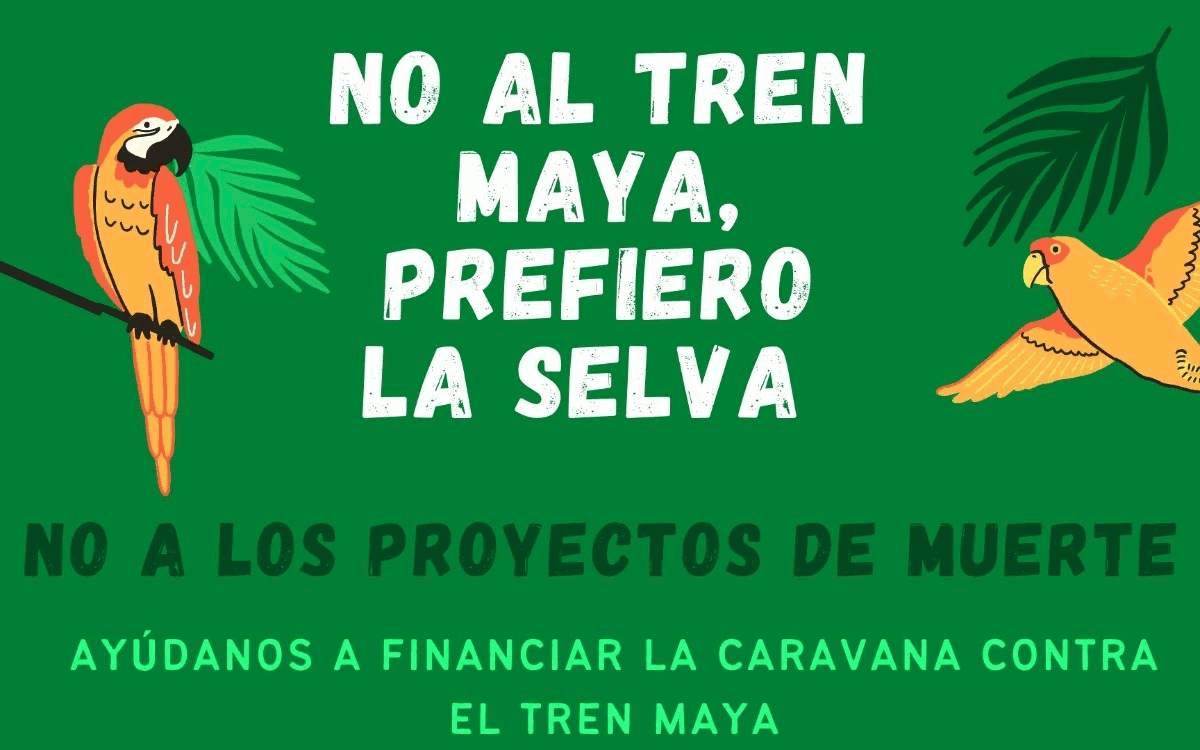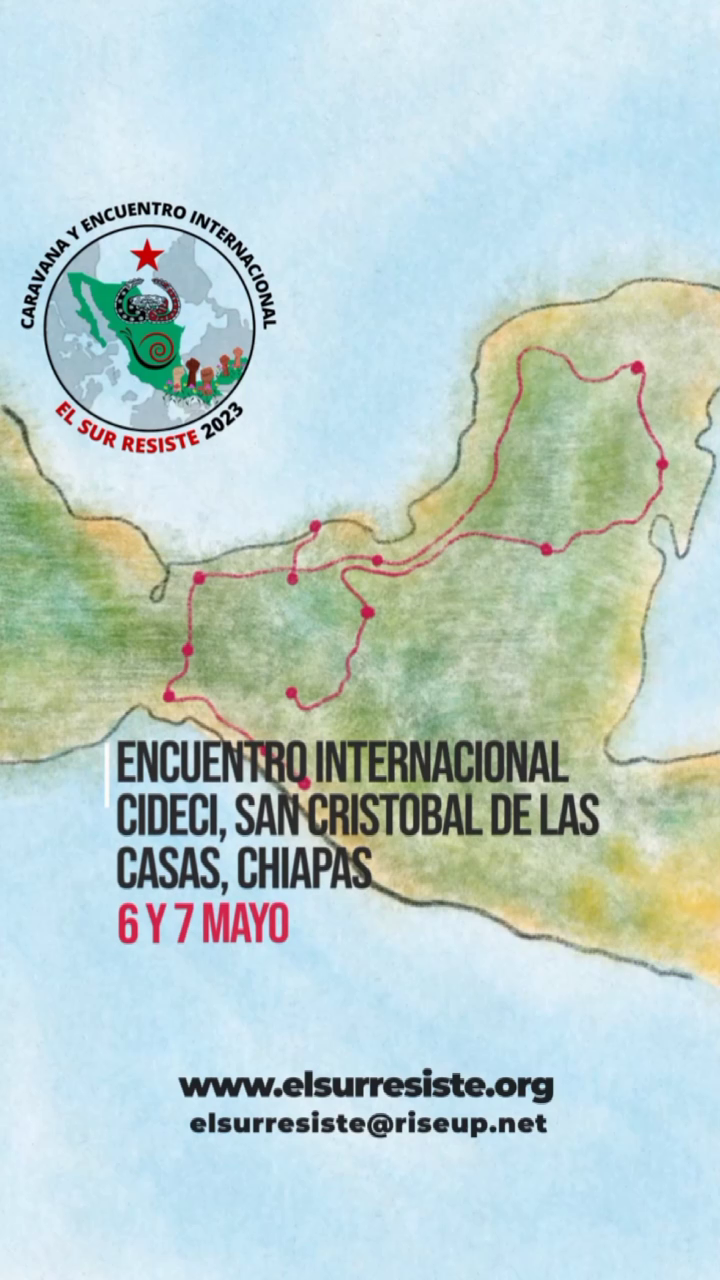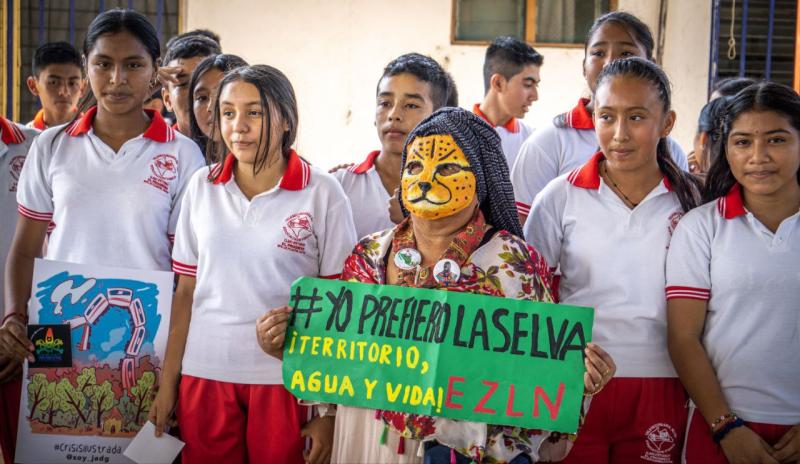
Ejido de Progreso, Pijijiapan, Chiapas
The Caravan “El Sur Resiste” (The South Resists) departed from Ejido La Gloria, where the Consejo Autónomo Regional de la Costa de Chiapas (Regional Autonomous Council of the Coast of Chiapas) carries out diverse activities related to the teaching and sharing of knowledge about agro-ecology and ecological techniques. From there we traveled to Ejido de El Progreso where a march and political rally took place.
Under the dome of the central plaza, the Consejo Autónomo spoke about their experience of almost 30 years of resistance, which has focused on, but is not limited to, denouncing and resisting the high electricity rates charged by the Comisión Federal de Electricidad (Federal Commission of Electricity). They also demand the Comisión Federal applies the constitutional recognition of electricity as a human right, which the Mexican government must guarantee.
“Why should we have to choose between food, clothes, and paying a bill of 1500 pesos to 3000 pesos, we are farmers, workers, fishermen; we don’t have enough to pay these bills. We demand that since there are energy companies in Chiapas, we have a right to have electricity.” (Member of the Consejo Autónomo Regional de la Costa de Chiapas)
Members of the Autonomous Council also emphasized that their organization intersects with the other issues, such as the imposition of projects that supposedly promote development, but actually only bring environmental and economic impacts; violence against women and a lack of respect of the rights of the local communities were issues mentioned at the rally.
One woman recounted how the government had approached the community with promises of highways, hospitals, and schools in exchange for the permission to open mining projects, but the communities have resisted and organized themselves to prevent the arrival of mines to the region. One of the functions of the Autonomous Council is to raise awareness in the communities about the false promises the government makes in exchange for the permission to establish projects of many kinds (real estate, mining, energy, and assistance programs).
There was also talk of the intention of the government and businesses to take control of everything, including the water, natural resources, food, jungle, and even the children of the community. Facing this, the community intends to keep fighting and resisting the theft, lies, and impositions on their territory.
“It’s about the looting of everything… they want to take control of our decisions, our resources, they are taking control of our families, the water, the air. Everything we need to live, they want to control. In areas where there is no social organization, they have been able to take it. In other areas, like here, we have been able to resist.” (Member of the Consejo Autónomo Regional de la Costa de Chiapas).
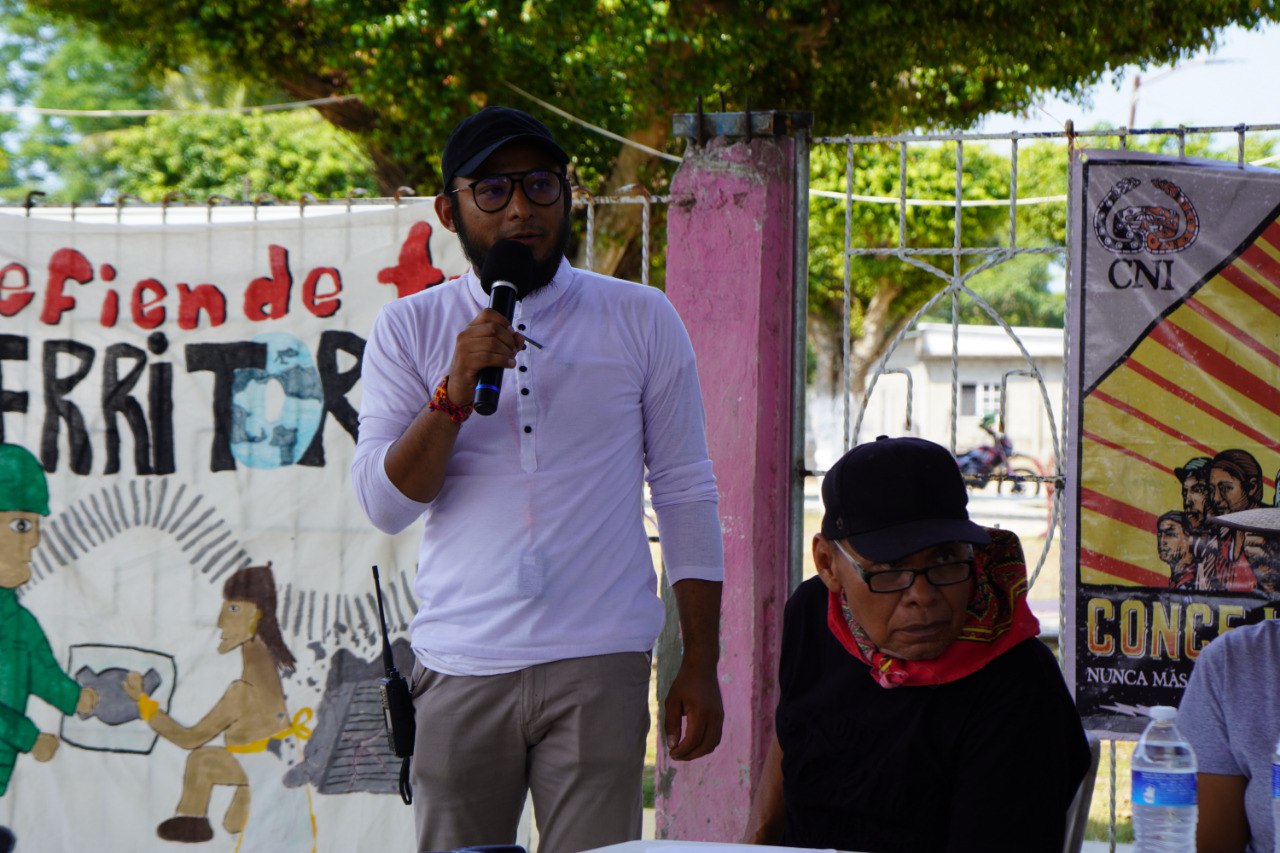
Tonalá, Chiapas
After visiting the community of El Progreso, the Caravan El Sur Resiste advanced towards the city of Tonalá, Chiapas, where another rally, organized by the committee of civil resistance Frente Cívico Tonalteco (Civic Front of Tonolá), took place in the main park of the city, in front of the city hall.
Here, there was a discussion about the mega-projects called the Corredor Transístmico/Corredor Interoceanico (Trans-Isthmus Corridor/Interoceanic Corridor) and the Tren Maya (Maya Train). Members of various communities of the Isthmus of Oaxaca, of Veracruz, and of the Otomí community residing in Mexico City and the village of Santiago Mexquititlán rejected these projects for their politics of exploitation and violation of the rights of indigenous communities.
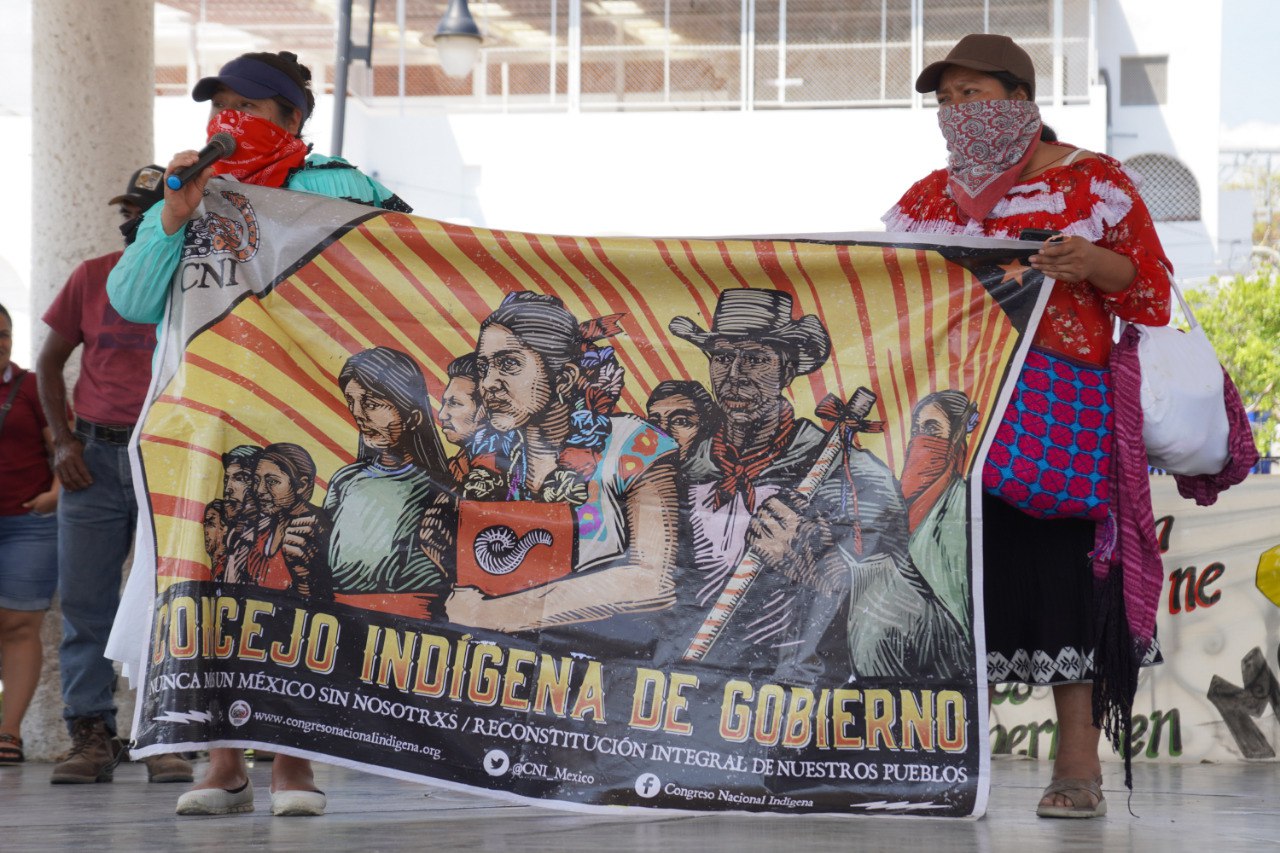
During the rally, it was discussed how these two projects are themselves projects promoting the extermination of the Mexican southeast, as they will carry along many other projects that will benefit foreign industries, and not local communities (as they have argued), including tourism, real estate, energy, mining, textiles, factories, industrial agriculture, fish farms, etc.
To exemplify the situation, members of the Caravan “El Sur Resiste” mentioned the government’s intent to construct a network of gas pipelines connecting Guatemala with the Region of the Isthmus of Mexico and the coast of Chiapas (including the city if Tonalá).
The gas pipeline of the Corredor Transístmico is not the only plan for the region. The federal government and the private sector have communicated the intent, expressed in various meetings with energy and petroleum companies (during the past six years and to date), to connect this gas pipeline (along with the Corredor Transístmico and the Tren Maya) with the following regional pipelines:
· THE TEXAS-TUXPAN-, VERACRUZ, - DOS BOCAS, TABASCO PIPELINE, which has a length of 700 km and an investment of 5 billion dollars
· THE CACTUS, OAXACA-DOS BOCAS, TABASCO PIPELINE, which has a length of 60km and an investment of 1 billion dollars
The statements by the private sector about this macro-network of gas pipelines indicate the plan to grant these projects to private investment, which enforces the arguments of the communities within the Caravan “El Sur Resiste” that these projects are for the benefit of foreign mega-businesses and private capital.
Militarization and Migration
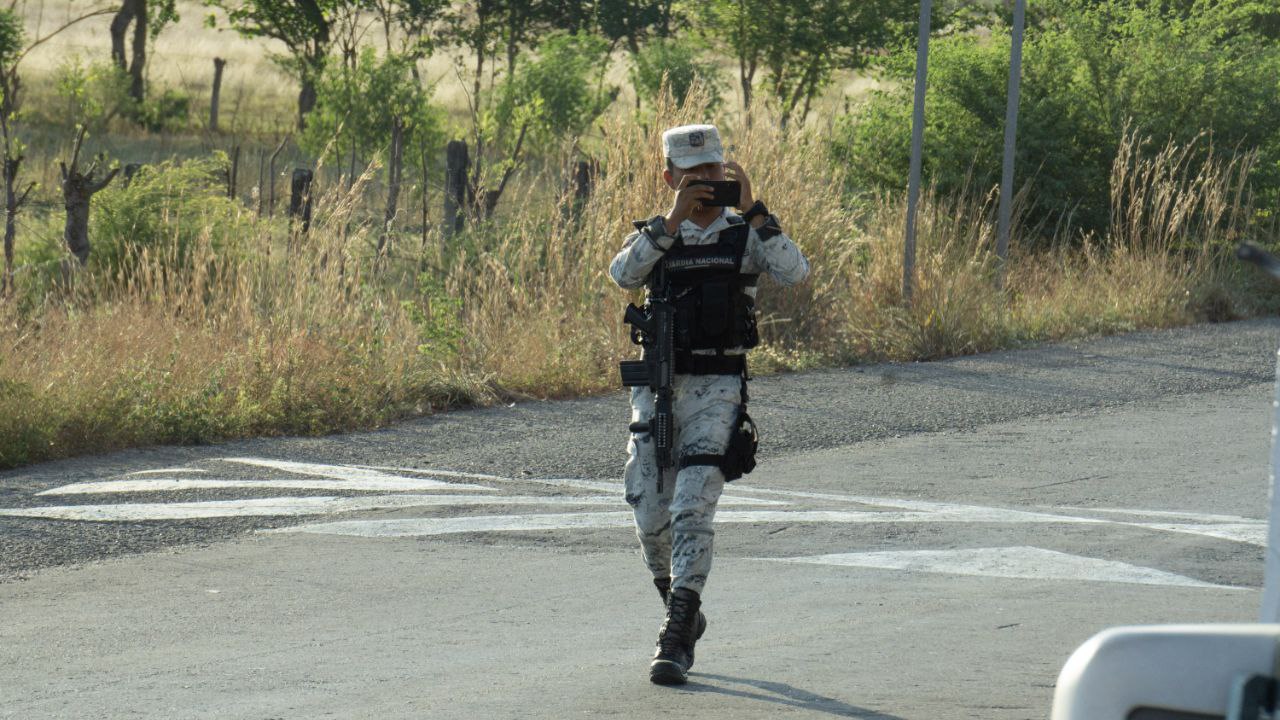
As diverse studies have shown, and as impacted communities have expressed, the negative effects of the death-projects of the Tren Maya and Corredor Transísmico extend beyond environmental destruction. They also include violations of the human rights of various Indigenous Nations that inhabit these territories and the destruction of their culture for the benefit of foreign millionaires. Impacts also include the increase of military presence, the Mexican National Guard, other police forces, paramilitary organizations, and narco-traffickers, which will increase the violence against the people that inhabit this region.
For example, in Chiapas a total of 146 military camps have been constructed. Many of these barracks have been positioned close to Zapatista communities.
One of the objectives of Tren Maya and Corredor Transístmico is to create giant industrial zones throughout the whole Southeast region. Not only will this convert the local Indigenous populations into sources of cheap labor for various industries, it will also be a containment zone for migrants from all over the world who start their journey towards the United States through Chiapas, Yucatán, and other routes.
The impacts of this politic are already being tangibly felt in Chiapas and along the route which the Caravan “El Sur Resiste” traveled. In our journey from Tonalá, Chiapas to Puente Madera, Oaxaca, we already passed through more than 9 roadblocks manned by the Mexican Army, the National Guard, state Police, and the National Migration Institute, who stopped different vehicles of the Caravan at least 7 times, photographed the vehicles, and in 4 occasions boarded the vehicles to photograph the participants.
At the roadblock which marks the division between Chiapas and Oaxaca, not only were we photographed by the official agents of repression of the Mexican state, but we were also photographed by people in plainclothes, who travelled by motorcycle and followed us for the first meters after passing the roadblock. We do not know the nature or goal of these people, but we proceeded with the highest caution due to potential military components.
Along the whole route, we observed various groups of people traveling the large highways on foot, and who, upon seeing the roadblocks, moved to the undergrowth flanking the highways. They face many risks on these journeys, including exploitation and human trafficking by groups of organized crimes conspiring with local authorities, the army, and other police forces.
In the small area we visited in Chiapas, the impacts of the Tren Maya and Corredor Transísmico are already seen in the militarization and the retention/persecution of people migrating north.
The negative environmental and social impacts are coming slowly, but they will become clear in the near future. Meanwhile, the communities are calling for resistance against these mega-projects and the various projects that they will bring. These projects are bringing environmental and social catastrophe perceptibly closer.
At the end of the day, the Caravan was received by the community of Puente Madera, where community members carried torches and chanted slogans expressing their firm decision to defend their territory against the Corredor Interoceanico.
